2017 Summer Research Grant Awardees

Dr. Rebecca Brand
Department of Psychology
College of Liberal Arts and Sciences
Project Title: The role of self-produced locomotion experience on infants’ understanding of agency
Interpreting others’ actions in terms of underlying psychological causes is a foundational skill for social, emotional, and linguistic development. Infants appear to have impressive skills at interpreting agents, apparently supported by both innate skills and their own experiences. There is promising evidence that the onset of locomotion (typically crawling) may facilitate this understanding; however, existing evidence is merely correlational. This project will be the first to test this idea experimentally, by providing non-crawling infants locomotor experience using an infant-controlled robotic platform. The “Baby Kart” is a slow-moving wheeled device operated by infants’ own head turns and arm waves. The proposed studies are exciting for their use of this novel robotic design, and would set the stage for investigating other important developments in both typically-developing children and those experiencing delays.
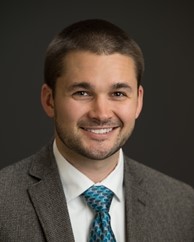
Dr. Jacob Elmer
Department of Chemical Engineering
College of Engineering
Project Title: Microvesicles for CRISPR/Cas9 Genome Editing
My goal is to create a novel gene delivery vehicle that simultaneously delivers a new gene (on a bacterial plasmid) and an enzyme (Cas9) that will insert the gene into the target cell's genome. The vehicle is an "extracellular vesicle", which buds off of a producer cell's membrane. Therefore, the vesicle resembles the host cells themselves and is able to efficiently merge with the target cells to deliver its cargo. If successful, this technique will make it much easier for researchers to insert genes into a wide array of target cells. For example, this technique could be used to insert genes into T cells that reprogram them to attack cancer cells.

Dr. Danielle Lombardi
Department of Accounting
Villanova School of Business
Project Title: The Effects of Valuation and Instrument Complexity on the Preparation and Assessment of the Reasonableness of Fair Value Measurements for Complex Financial Instruments
After the Global Financial Crisis, critics of financial statement preparers (“management”) and auditors suggest both played a significant role in the proliferation of inherently uncertain fair value measurements (“FVMs”). Management often relies upon valuation specialists to help them generate a point estimate within an imprecise range of possible outcomes for financial reporting purposes; however, the valuation process lacks uniformity across the profession. While management may be well-versed in how to account for FVMs once generated, they generally lack an understanding of the underlying instruments and the associated valuation process. Relatedly, auditors, too, may lack sufficient exposure to a particular instrument and thus fail to understand whether the instrument and any portion of its features require audit assistance from their valuation specialists. Regulators such as the PCAOB and the SEC further suggest that both management and auditors lack a sufficient understanding of the valuation process and often accept the work of the specialists without adequate critical evaluation.
This study extends prior research by examining 1) the process valuation specialists use to derive an FVM, 2) whether and how variation in the same FVM occurs, and 3) how differences in valuation are resolved. The use of verbal protocol analysis and Delphi method will generate data with practical implications, including the development of materials to ensure that valuation issues are properly understood and reflected by auditors and management; supporting the development of high quality international valuation and/or audit standards; and facilitating further collaboration and cooperation among the groups being studied.

Dr. Mary Mullen
Department of English
College of Liberal Arts and Sciences
Project Title: Novel Institutions: Realism, Anachronism, and the Nineteenth-Century Novel
Novel Institutions offers a new, transnational understanding of literary realism that argues that the failed Irish novel is exemplary rather than anomalous. Although Victorian studies scholars have sought to expand our understanding of realism by focusing on its cosmopolitanism, its transatlanticism, and its global reach, the importance of Irish realism to English novels of the period remains unstudied. Irish studies scholars tend to focus on how Irish novels differ from their English counterparts as they argue that the nineteenth-century Irish novel is defined through its failure to reproduce realism. Associating realism with consensus, integration, and homogeneous, empty time, these scholars claim that the nineteenth-century Irish novel represents contradictions instead of consensus, discordance instead of integration, and anachronism instead of homogeneous time. By contrast, I argue that the Irish novel is not a failure: its explicit anachronisms make visible the formal contradictions that define the genre more broadly. Through new readings of canonical and non-canonical novels from England and Ireland, Novel Institutions makes three related arguments: 1) representing every day, ordinary life necessitates a tension between institutions and anachronisms; 2) realism’s prevalent anachronisms disrupt existing institutional arrangements and imagine the future otherwise; 3) our own institutional practices which separate English and Irish novels as they narrate the rise of the novel fail to show how both novel traditions are defined through contradiction rather than consensus.
Dr. Julie R. Klein
Department of Philosophy
College of Liberal Arts and Sciences
Project Title: Gersonides’ Thought at the Intersection of Jewish, Islamic, and Christian Philosophy
In western philosophy, we often think in terms of human free will, which we understand as the ability to act on one’s own choices, against outside influences, and against unwanted desires. The idea of the will as a faculty of the human soul originates in Paul’s Letter to the Romans and in Augustine’s philosophy. Later medieval Christian philosophers and theologians expand on their predecessors’ innovations in fascinating detail, and, later still, Protestant and Reformed thinkers add their ideas. Quite strikingly, no such distinct mental faculty of will is found in Plato, Aristotle, or ancient Stoic authors. The ancients explain the human ability to choose without recourse to will as we know it from later authors. In contrast to Christian thinkers, who transform the ancient texts they read, reading one philosophical psychology into another, medieval Jewish and Islamic philosophers work largely within the ancient framework. My project investigates the views of the foremost Jewish Aristotelian of the fourteenth century, Levi ben Gershom (Gersonides), whose work on human freedom and choice is particularly interesting for occurring at the intersection of traditions. Gersonides inherits the Aristotelian corpus with the commentaries of the great Islamic philosopher Averroes, and he lives and works in proximity to the Papal Court in Avignon. Gersonides’ works suggest an acquaintance with the philosophy of Christian authors such Thomas Aquinas and John Duns Scotus. Thus my summer research pursues a single question: Although Gersonides eschewed the language of volition, are there elements of his theory of intellectually-shaped choice that echo, or even reproduce, Christian problematics?
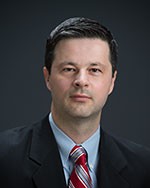
Dr. Gerald J. Beyer
Department of Theology and Religious Studies
College of Liberal Arts and Sciences
Project Title: Solidarity or Status Quo? Catholic Social Teaching and the Mission of Catholic Universities
The 1971 Synod of Bishops document Justice in the World trenchantly articulated one of the fundamental premises of my book: “anyone who ventures to speak to people about justice must first be just in their eyes.” In Solidarity or Status Quo? Catholic Social Teaching and Higher Education in the Age of the Corporatized University, I argue that Catholic universities must follow this maxim in order to teach and promote justice in the world effectively. My book project assesses ways that Catholic universities have embodied or failed to embody Catholic social teaching (CST) in their campus policies and practices. I argue that the corporatization of the university has increasingly infected higher education with hyper-individualistic practices and models. This phenomenon hinders their ability to create an educational environment imbued with respect for human dignity and rights, solidarity, and justice. My analysis demonstrates how CST can provide a bulwark against the further erosion of this central aspect of the mission of Catholic universities.
The initial chapter problematizes the contemporary context in which Catholic colleges and universities operate in the United States, namely that of corporatized higher education. Successive chapters treat worker justice on Catholic campuses; access for economically disadvantaged students; exclusion and marginalization based on race, gender, and sexual orientation; and socially responsible investment of university resources and environmental stewardship. I demonstrate how the gestalt of the corporatized university hinders the ability of Catholic universities to overcome problems in these areas.
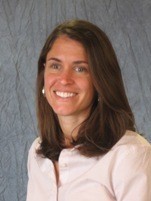
Dr. Samantha Chapman
Department of Biology
Project Title: Mangroves on the march: implications of plant migration for coastal resistance to sea level rise
Climate change is reshuffling the ranges of plant and animal species all over the globe. For example, mangroves, which are coastal trees, are encroaching into salt marshes due to the decreasing frequency of winter freeze events. In the past five years, we in the Chapman lab have shown that this plant range shift increases coastal protection of the unique and important facilities at the Kennedy Space Center. However, we don’t yet know how well these wetlands will keep up with rising seas. Mangrove and salt marsh root growth determines how well wetlands “build land” and maintain soil elevation with respect to the ocean. In order to determine how mangrove encroachment into marshes alters wetland resilience to global change, I will model how soil elevation will respond to future sea levels. I will use existing and collect new field-based root growth data from two geographically distinct sites, Florida and New Zealand, to parameterize the model. I hypothesize that the balance of increased root growth and increased decomposition will increase wetland ability to keep up with rising sea levels. My cross-site comparison can advance our understanding of the mechanisms driving the ability of wetlands to keep pace with sea levels and thus protect human populations from storms.

Dr. Judith Giesberg
Department of History
College of Liberal Arts and Sciences
Project Title: "Last Seen:" Finding Family After Slavery
The Last Seen Project is producing a powerful new tool for conducting African American genealogy and for researching the experience of slavery and black enlistment by collecting and transcribing hundreds of Information Wanted advertisements taken out by former slaves looking for family members lost through sale, enlistment, and wartime displacement. Ads appeared as early as 1863 in Philadelphia's Christian Recorder; they showed up in papers such as New Orleans' Black Republican, Nashville's the Colored Tennessean, Charleston's South Carolina Leader, Galveston's Free Men's Press, and Cincinnati's the Colored Citizen; and they continued to appear in the Chicago Defender well into the twentieth century. Freed people took out ads from every US state and the territories, Canada, and the West Indies, testifying to the wide reach of the African American diaspora. That mothers hoped to find children, and vice versa, decades after they had lost one another is a testament to the emotional bonds that survived the disruptions of slavery and war. Each ad is full of remembered details about times and "last seen" places and memories of lost children, husbands, wives. In the first stage of this project (see website), with the help of Margaret Jerrido at Mother Bethel AME Church, we have collected and transcribed more than 800 ads from the Recorder. PAS funds will allow this work to continue this summer.

Dr. Erica Harris
Department of Accounting
Villanova School of Business
Project Title: Social Media and Nonprofit Donations
Social media outlets present nonprofit organizations the opportunity of opening new communication and disclosure channels. Organizations must decide whether to set up these channels. They – and in turn their target audiences – must also decide how much to use them. Given the efforts involved in social media, nonprofits must ask whether there is a tangible benefit. In this study we test a multi-level signaling theory framework to examine the relationship between social media investments and financial returns. Specifically, employing a cross-temporal sample of the 520 largest non-hospital charities in the 2012 Statistics of Income database, we look at the donations returns from three dimensions of organizations’ social media efforts. One, we look at whether the organization has a social media presence. Two, we look at how much the organization uses social media. And three, we look at the level of engagement of the organization’s audience. We effectively posit financial returns result from establishing a particular communication channel, from using that channel, and from having channel-specific audience effects. The findings carry implications for the signaling theory and donation demand literatures and further our understanding of how these new media are changing the rules of donor engagement.
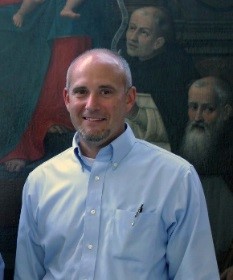
Dr. Anthony Lagalante
Department of Chemistry
College of Liberal Arts and Sciences
Project Title: Development of Mass Spectrometric Methods to Measure Bisphenols in Printed Thermal Paper. Implications for Human Exposure
Bisphenol A (BPA) is a high volume chemical with over six billion pounds produced annually and over 100 tons released into the global environment annually. BPA is used to make polycarbonate plastic and is largely used in food tableware and plastic bottles, while epoxy resins are commonly found as internal coating for food and beverage cans. A 2008 monograph by the National Toxicology Program, Center for the Evaluation of Risks to Human Reproduction (NTP-CERH) concluded that BPA causes developmental toxicity and in 2016 the California Office of Environmental Health Hazard Assessment (OEHHA) has added BPA to the list of chemicals known to cause female reproductive toxicity. Recently, there is an increased concern of exposure to BPA through contact with BPA-containing paper, particularly thermal receipt paper (cash registers, credit card terminals) as well as recycled paper used in food and beverage containers. BPA is often used as a color developer in receipts relying on the thermal transfer technology. In addition to cashiers, most people come in contact with thermal paper on a daily basis which has prompted concern for dermal exposure routes for BPA. Structurally similar to BPA, new bisphenols (PBS, BPF, BPB, etc.) are being used as replacements for BPA in thermal paper and consumer items with increasing legislation against BPA. This research project will seek to develop new, highly-sensitive analytical methods to detect bisphenols in thermal receipts and recycled paper in order to assess the use and human exposure potential of this class of compounds in paper products.

Dr. Timothy McCall
Department of History
College of Liberal Arts and Sciences
USG: Matters of Renaissance Fashion
Matters of Renaissance Fashion critically interprets the materialities of Early Modern clothing and adornment, and the processes, networks, and ethics of their acquisition and production. This innovative study integrates a theoretically sophisticated perspective on fashion and embodied material culture, with a scientifically and historically grounded analysis of their raw and worked substances. Insisting on the salience of the stuff of fashion and clothing, this book provides an in-depth and resolutely historicist account of its procurement, manufacture, and display.
Aligned with Art History’s recent, energetic engagements with the agency and matter of art and material culture, this project extends the discipline’s vigorous re-assessment of artisanal expertise and experiential practices to fashion. I am to recapture a Renaissance “sartorial and material period eye,” investigate “material fictions of luxury” in both clothing and painting, and survey and interpret the materials of clothing (dyes, mordants, metals, and textiles) which were also used in the making of art by resourceful and practical artists and artisans. Matters of Renaissance Fashion inventively makes sense of the dynamic links between the raw materials and finished goods of clothing, the practices and production of art (in painting and metalwork, in particular), and the representation and operations of aristocratic power in Renaissance Italy.

Dr. Jill McCorkel
Department of Sociology and Criminology
College of Liberal Arts and Sciences
USG: Incarceration and the Family: Law, Prison, and the Politics of Parenting in Ireland and the United States
Over the last three decades in the U.S., the number of children experiencing the incarceration of a parent has grown dramatically. Research finds that these children are adversely impacted across multiple domains: academic, behavioral, economic, psychological, medical, and legal. The negative outcomes that children of prisoners experience are the result of a complex interplay of socioeconomic conditions, family dynamics, penal policies, and law. In spite of this, very little research exists, particularly in a comparative global context, which explores how law and prison policies impact the ways families navigate a parent’s incarceration. My project asks how do laws and penal policies intersect with family systems to shape outcomes for children? Such research is necessary to develop effective policies aimed at minimizing the collateral harms of incarceration on families and children.
To fill the gap in the research literature, the current project builds on my research in U.S. prisons and investigates how laws and policies unique to the Irish criminal justice system shape parenting strategies and family relationships among prisoners. Ireland offers an interesting counterpoint to the U.S. because family visitation policies are more liberal, particularly for incarcerated mothers. For example, infants are allowed to remain with their mothers during critical months of development. Further, Irish children and families enjoy greater legal rights and protections, including an affirmative right of access to an incarcerated parent. The award of Summer Research Grant funding will support preliminary, ethnographic and archival data collection efforts in Ireland.
Dr. Matthew Youngman
Department of Biology
College of Liberal Arts and Sciences
USG: Identifying the binding partners of SMK-1, a nuclear protein that controls stress response and healthspan in the roundworm Caenorhabditis elegans
In humans and other species, one hallmark of aging is a diminished capacity to defend against environmental stresses including toxins and bacterial pathogens. Moreover, the ability to repair the damage that these stresses cause to cells becomes weaker. But is there were a way to ramp up the defense and repair repertoire later in life to make us healthier and more resilient as we grow old? My students and I address these questions by studying aging in a tiny worm. Since many of the worm’s genes are similar to ours, we anticipate that what we learn about aging in our animals will also apply to the aging process in humans. We find that when we disrupt the function of the protein encoded by the gene SMK-1, older worms are more resistant to some types of stress than normal non-mutants. (Humans also have a version of this protein named SMEK1). This suggests that SMK-1 may limit the response to stress in older animals. SMK-1 is always found inside the nucleus of cells where DNA is, and our studies suggest that it influences the expression of genes that protect animals from stress. The goal of my USG project is to identify the proteins that SMK-1 cooperates with to modulate gene expression. This will help us to understand the mechanism by which SMK-1 curtails the stress response in older worms. Ultimately, our studies may suggest targets for future therapies in humans that allow access to untapped resources to counteract stress later in life.

Dr. Melissa O’Connor
College of Nursing
USG: Determining Readiness for Discharge from Skilled Home Health Services: Optimizing Services to Impact Patient Outcomes
In 2014, 3.4 million Medicare beneficiaries received approximately 6.6 million skilled home health episodes costing Medicare 17.7 billion dollars. Medicare covers skilled home health in 60-day episodes and relies upon home health clinicians and physicians to evaluate beneficiary needs and to decide when to discharge from services. At any time during the episode, a home health clinician can discharge from services. Currently, these decisions are reliant on individual clinician judgement to determine readiness for discharge from skilled home health services as there are no national, empirically derived clinical decision support tools to assist clinicians in making these common and important decisions. My prior work indicates a home health length of stay (LOS) of less than 21 days, compared to a home health LOS of 42 days or more, increased the need for hospitalization and decreased the time to hospitalization and death within 90 days of discharge from home health services. These findings suggest that vulnerable older adults who are discharged from home health prematurely may be more likely to experience poor outcomes. In my program of research, I am creating an evidenced-based discharge decision support tool to assist clinicians in determining readiness from home health. The Villanova Summer Research Grant will enable me to build the electronic case studies that will serve as the basis for the interprofessional home health clinician experts to identify the specific clinical, functional and socio-demographic factors that they believe are important to consider when determining discharge readiness from skilled home health among older adults.

Dr. Kristin Sample-Lord
Department of Civil and Environmental Engineering
College of Engineering
USG: Improving Protection of Groundwater: Evaluating the Role of Diffusion in the Performance of Soil-Bentonite Cutoff Walls
Protection of groundwater from contamination has been a long-term, challenging issue in geoenvironmental engineering. Soil-bentonite (SB) cutoff walls commonly are used as engineered barriers to control flow of contaminated groundwater, but transport of contaminants through SB walls is barely understood. The goal of the proposed research is to evaluate the significance of contaminant diffusion on the long-term performance of SB cutoff walls. Although diffusion may be a significant mechanism by which contaminants escape through SB cutoff walls, our understanding of the potential impacts on barrier performance is limited due to a lack of experimental research. In this study, diffusion properties of SB backfills will be measured for a range of solution concentrations and backfill compositions representative of real SB cutoff walls. A preliminary evaluation of the significance of diffusion on the long-term containment performance of SB cutoff walls for a variety of field conditions will be performed using an analytical model paired with the experimental results and data in the literature. This preliminary work is a foundational step in developing more comprehensive research programs, the results of which will enhance the ability of designers and regulators to protect human health and the environment from the effects of contaminants.

Dr. Kabindra Shakya
and Dr. Peleg Kremer
Department of Geography and the Environment
College of Liberal Arts and Sciences
USG: Spatial variability of air pollution in Philadelphia during summer 2017
This study aims to investigate the spatial distribution of particulate air pollution (PM2.5) and noise pollution in Philadelphia by using mobile monitoring. Four neighborhoods in Philadelphia, located on a north-west to south-east transect, with varying forms of vegetation, buildings, and paved surfaces, as well as socio-economic characteristics will be monitored. Data will be collected by walking predetermined paths using integrated mobile monitoring units and GPS. Air pollution, noise and spatial data will be processed and mapped. Results will be correlated with surrounding physical and socio-economic attributes to reveal patterns in the distribution of air pollution and noise. This project stands to contribute to a relatively new and limited body of literature identifying fine scale spatial and temporal variation in the distribution of air pollution in urban areas such as Philadelphia, and the urban processes that underlie their distribution.
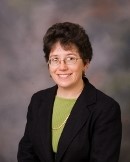
Dr. Lauren Shohet
Department of English
College of Liberal Arts and Sciences
USG: Epic Losses: Re-mediating the Shield of Achilles
I plan to write the a book chapter that focuses on the Shield of Achilles, a piece of armor in Homer’s Iliad that is passed down through literary history to reappearing in such later works as Virgil’s Aeneid, Milton’s Paradise Lost, W. H. Auden’s lyric poetry. In Homer, the shield is forged by the god Hephaestus and inscribed with wondrously full renderings of human experience. When the Iliad describes these pictures, Homer’s poetry represents Hephaestus’s visual art, creating the earliest literary example of the picture-to-word transliteration called “ekphrasis.” Questions of representing one sense experience in the medium of another are redoubled in the Shield of Achilles, because the pictures themselves visually render all different kinds of sense experience: music, dance, fragrant smoke. My chapter considers two aspects of this trope. First, I examine how post-Homeric versions of the shield adapt its ekphrastic operations, exploring how they work with the additional complication of alluding to literary history. Later shields not only represent transactions like movement into picture into word, that is, but wrinkle this further by reflecting on the pastness of their sources in their present words. Second, I point out the similarity between problems treated in modern-day re-mediation -- adaptations of one medium into another, like novel into film, page onto digital screen, or comic into video game - and the poetic practice of ekphrasis. I consider what theories of re-mediation (burgeoning since the 1990s) and ekphrasis (dating back to the Renaissance) might have to offer one another.

Dr. Suzanne C. Smeltzer
College of Nursing
USG: Perceptions of Educational Needs of Pregnant Women with Disabilities of Childbirth Educators and Women with Physical Disabilities
Women with disabilities that limit their mobility receive health care during pregnancy that is of lower quality than care received by women without disabilities. Some have even been refused care because they have a disability. Many health care clinicians lack knowledge about issues affecting women with disabilities during pregnancy and as a result they are unable to explain to women how their disability might affect their pregnancy, including labor and delivery. Attendance at childbirth education classes is more than a “rite of passage” for pregnant women and their partners. Such classes, designed to prepare pregnant women and their partners for labor, delivery and care of their baby, rarely address the needs of women with physical disabilities. As a result, they are unable to anticipate what their labor and delivery will be like.
In an effort to lean what information women with disabilities consider essential for them to receive during childbirth education classes, I will conduct a qualitative study to explore the information needs of women with physical disabilities through interviews. I will also interview childbirth educators about needs of women with physical disabilities in their childbirth education classes, what they know about physical disability, its interaction with pregnancy, and what they wished they knew about that interaction. Maternal/child health faculty from the College of Nursing will also participate in analysis of the results of the interviews. This research builds on my previous work with this population of women and will provide much needed information about their learning needs during pregnancy.
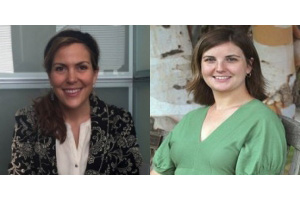
Dr. Virginia Smith
and Dr. Bridget Wadzuk
Department of Civil and Environmental Engineering
College of Engineering
USG: Modeling the Hydrologic Impacts of Green Infrastructure on a Drainage System
Green infrastructure (GI) is becoming the preferred vehicle for addressing environmental impairment caused by urban stormwater runoff. As a result GI plays an increasingly critical role in improving urban and suburban stormwater management within a watershed. While research has shown GI's robust ability to reduce non-point pollution and mitigate stormwater volume, the functionality of these features as part of a drainage network is not well understood. This research project aims to investigate GI as part of the drainage network, assessing the role of the GI on the larger stormwater drainage system from a watershed scale approach. Over the past 17 years, research conducted by Villanova Urban Stormwater Partnership (VUSP) on Villanova’s campus has resulted in the installation and monitoring of several individual GI areas. This prior research has resulted in a greater understanding of best practices for GI design and installation. This project will build on previous VUSP GI systems research by using existing data to create models of the hydrology into and through the VUSP GI systems and allow for the evaluation of the influence of GI as a system on watershed scale.
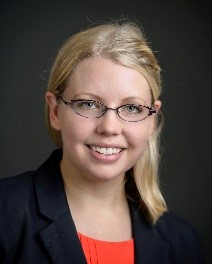
Dr. Chelsea Phillips
Department of Theatre
College of Liberal Arts and Sciences
USG: Carrying All Before Her:” Celebrity Pregnancy on the London Stage, 1689-1800
Though bracketed by centuries of greater social restrictions, women in the long eighteenth century enjoyed a considerable measure of agency and social acceptance during pregnancy. At the same time, an important shift was occurring in the professional British theatre, giving rise to the first generations of female celebrities. When celebrity actresses became pregnant, actresses and managers faced both challenges and opportunities.
Theatre historian Robert Hume describes the history of commercial theatre in eighteenth century London as a “vivid story of ongoing competition, sometimes fierce, even destructive competition.” Theatrical managers deployed their most popular performers and entertainments strategically, altering the company’s repertory to take advantage of popular trends, illness or scandal in their competition, or to capitalize on rivalries. Unlike earlier studies, which assume that under these conditions pregnancy would be detrimental to actresses’ stage careers, I argue that pregnancy enhanced the demand for these women, and their economic viability, by placing their private lives on public display and winning them popular sympathy and support. This project intervenes in narratives of a male-dominated repertory system to showcase one very real and prevalent way women’s bodies shaped commercial theatre practice.
This summer, I will study the economic implications of pregnancy and pregnancy-related absences in the account books of London’s major theatres (British Library), and the influence of changing medical and social understandings of pregnancy on the experience of professional actresses (Welcome Collection and Library, London).

Dr. Irene P. Kan
Department of Psychology
College of Liberal Arts and Sciences
USG: Memory Scaffolding: Interplay between prior knowledge and new learning in healthy aging
Perhaps one of the most common memory complaints by older adults is a diminished ability to remember recent experiences, such as recalling where they left their keys or remembering the name of the person they just met at last night’s party. The term “episodic memory” is used to describe these memories for personally encountered events. However, despite older adults’ declining episodic memory, their memory for general world knowledge (or semantic memory), such as knowing that you can use a key to unlock a door, is generally preserved. This pattern is consistent with a well-established finding in cognitive aging research: Although episodic memory tends to decrease with age, semantic memory tends to remain stable. In the proposed
project, we ask: How can we capitalize on these differential aging effects and make use of the preserved system of prior world knowledge (semantic memory) to enhance and support the declining system (episodic memory)? Answering this question will allow us to establish the conditions that will maximize the learning and retention of new information in healthy aging and begin to formulate practical solutions.

Dr. Kelly Welch
Department of Sociology and Criminology
College of Liberal Arts and Sciences
USG: Saving Children, Damning Adults? Public Support for Juvenile Versus Adult Punishment
Prior research has made it clear that there is some effect of crime salience on preferences for punishment orientation, typically by strengthening support for harsh measures and reducing support for rehabilitative ones. Further, we know that the public holds views about justice system responses that distinguish between adult and juvenile offending. What has yet to be demonstrated is whether there are youth-specific differences in the way that fear of crime and perceived risk of victimization affect public support for punitive versus rehabilitative policies. Further, there is no research examining the extent to which perceptions about the efficacy of the justice system differentially affect punishment orientations for adult and juvenile offenders. The research supported by this grant will fill a void in knowledge about differential public attitudes toward juvenile and adult offending by exploring how crime salience and a lack of confidence in the criminal and juvenile justice systems affect punitiveness toward adult and juvenile offenders, how crime salience and a lack of confidence in the criminal and juvenile justice systems affect support for rehabilitation of adult and juvenile offenders, and how crime salience and confidence in the criminal and juvenile and justice systems account for support for rehabilitative policies for juveniles among supporters of punitive policies for adults. The answers to these questions may help steer lawmakers away from the harmful policies—driven in part by public perceptions and constituent demands—that have had particularly dire consequences for kids.

Dr. Calvin H. Li
Department of Mechanical Engineering
College of Engineering
USG: Experimental Study of Liquid-Vapor Phase-Change Heat Transfer on Surface Nanostructures
As well known that fires and explosions of Samsung’s latest cell phone, Galaxy Note 7, units were reported due to the excessive heat from manufacturing defect in the phones' batteries, which resulted in suspended sales of Galaxy Note 7 and a voluntary recall on September 2nd. 2016. If the excessive heat generated from defected batteries could be removed effectively, the fires and explosions would be avoided. This project aims to address the thermal management effectiveness in electronics by implementing nanostructures to assist heat transfer in liquid-vapor phase-change which has been utilized in advanced thermal management systems in computers and other high power density electronics. As demonstrated by the published results in Dr. Li’s group, nanostructures can enable a 2 to 4 times higher heat transfer coefficient in boiling heat transfer than that on a plain surface, which promises an effective thermal management system to prevent overheating in electronics. This proposed study will experimentally test liquid-vapor phase-change heat transfer on two different types of surface nanostructures: copper nanowires and copper nanocavities. The fundamental mechanisms of heat transfer enhancement by different geometric characters will be analyzed to answer the question how the overheating could be prevented by implementing nanostructures in current design of thermal management systems for electronics, so both a better fundamental understanding of liquid-vapor phase change heat transfer on nanostructures could be established, and a better thermal management system could be developed.
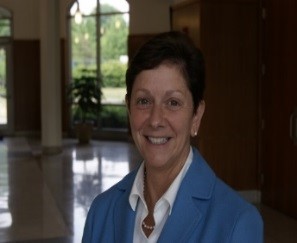
Dr. Mary Ann Cantrell
College of Nursing
USG: Health Outcomes of Young Adult Female Childhood Cancer Survivors
The broad, long-term objective of this proposed work is to add to the evidence in the development and testing of targeted interventions to improve the health-related quality of life (HRQOL) for young adult survivors of childhood cancer (CSS) and reduce these survivors’ engagement in high-risk behaviors. The study addresses the overall mission of the National Institutes of Health, which is to seek fundamental knowledge about the nature and behavior of living systems and the application of that knowledge to enhance health, lengthen life, and reduce illness and disability. The study design is a secondary data analysis using data from the 2009 Behavioral Risk Factor Surveillance System (BRFSS) survey. The BRFSS is a cross-sectional national state-based surveillance system computer-, coordinated by the Centers for Disease Control and Prevention. The BRFSS monitors health conditions, health-related risk behaviors, chronic health conditions, and use of preventive services. The 2009 BRFSS includes questions about individuals ‘physical and mental health and their effect on doing usual activities, as well as questions about pain, depression, anxiety, adequate rest and energy level. The specific objectives of this study are to:1) compare the HRQOL between female CSS and healthy matched females and between female and male CCS, 2) examine the relationship between HRQOL and depression, social support, emotional support and life satisfaction among female CSS, and 3) examine the relationship between gender, educational level, stress, life satisfaction, depression, anxiety, perceived health status, and activity limitations with smoking, alcohol use and binge drinking among CCS.
